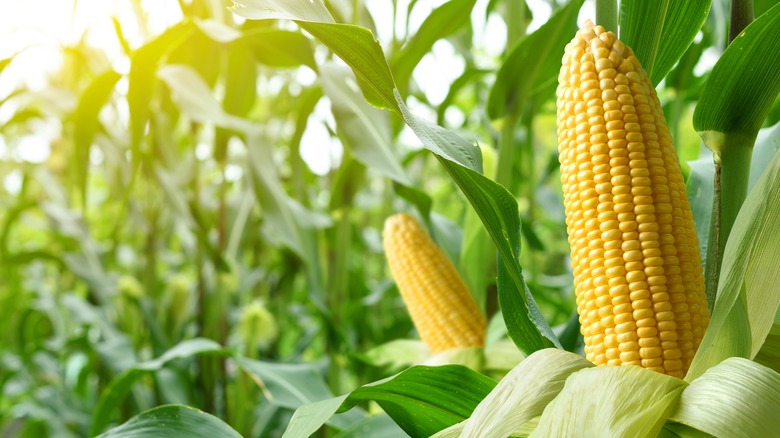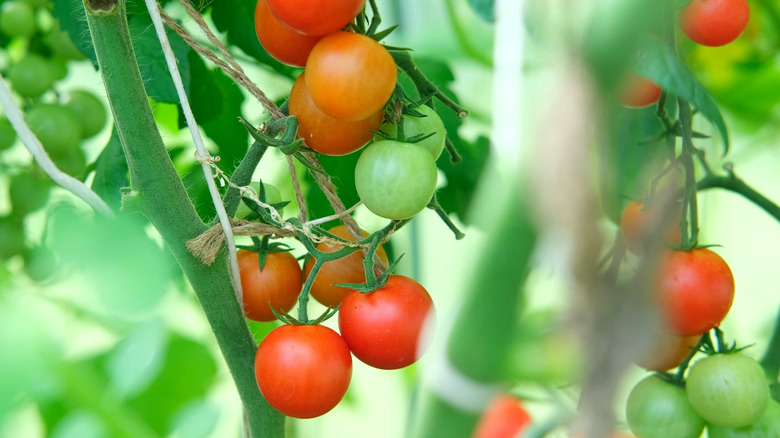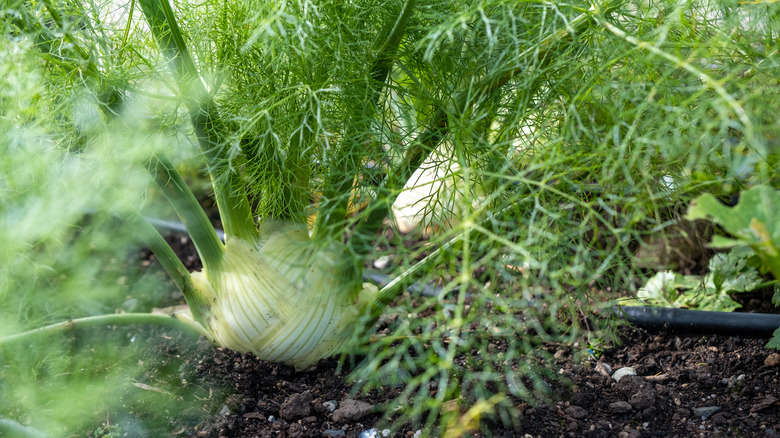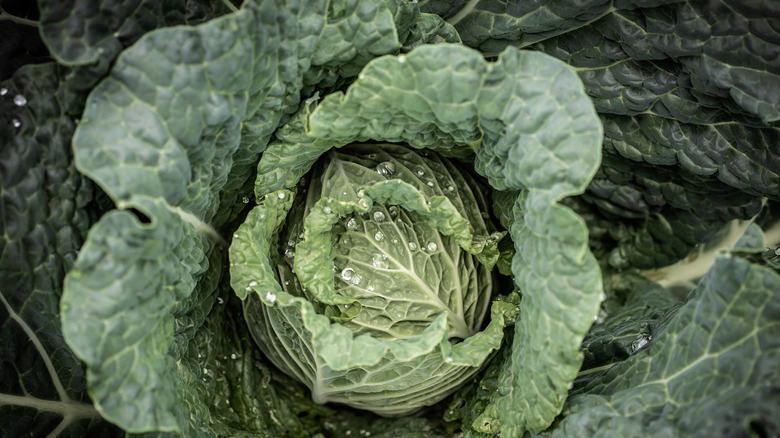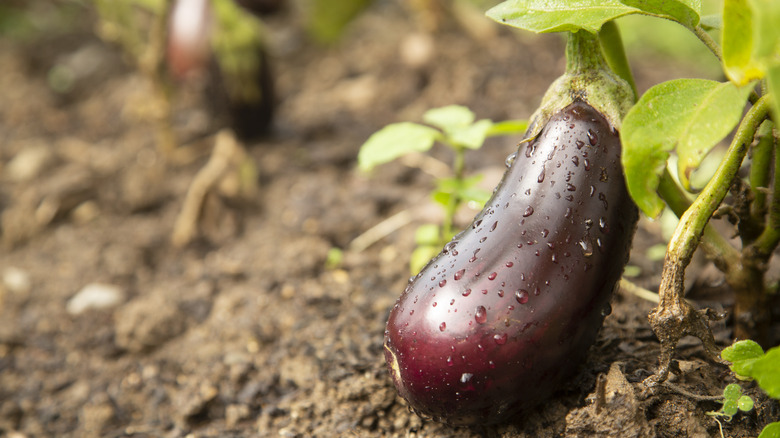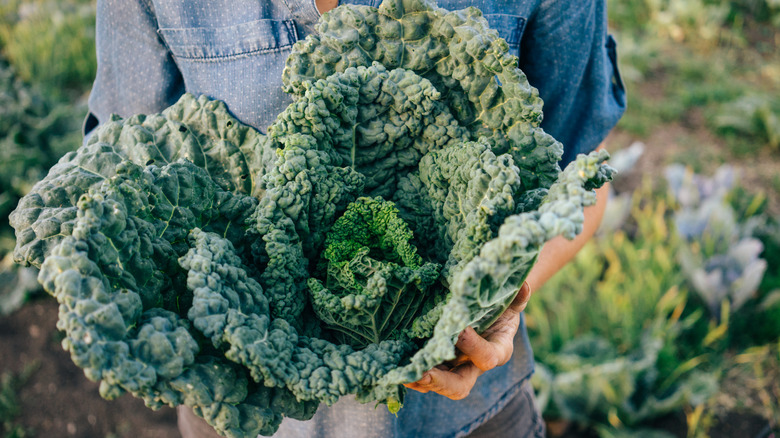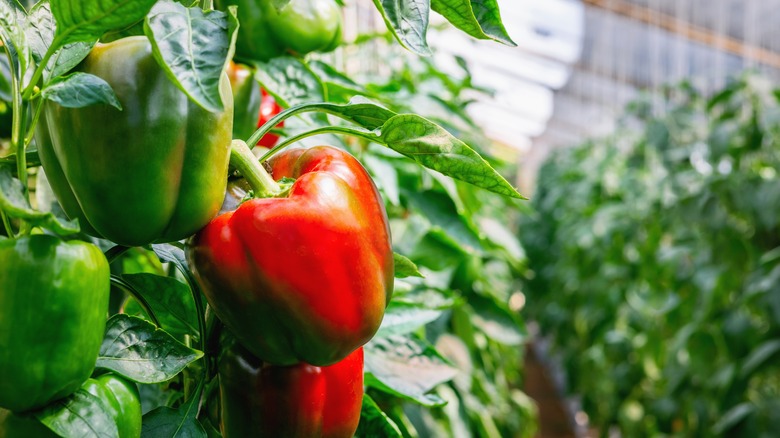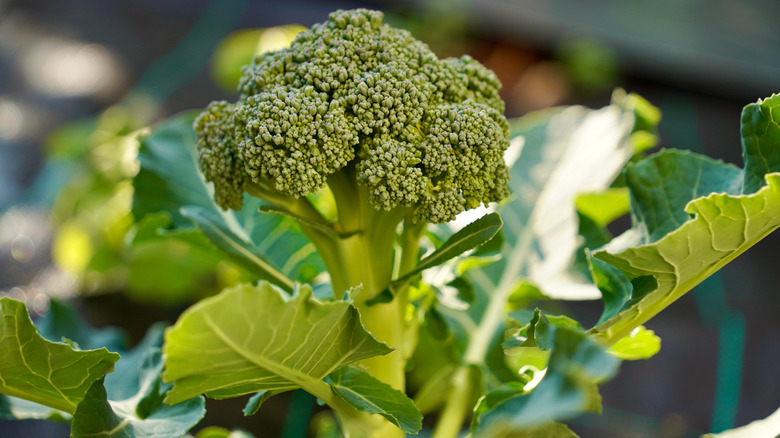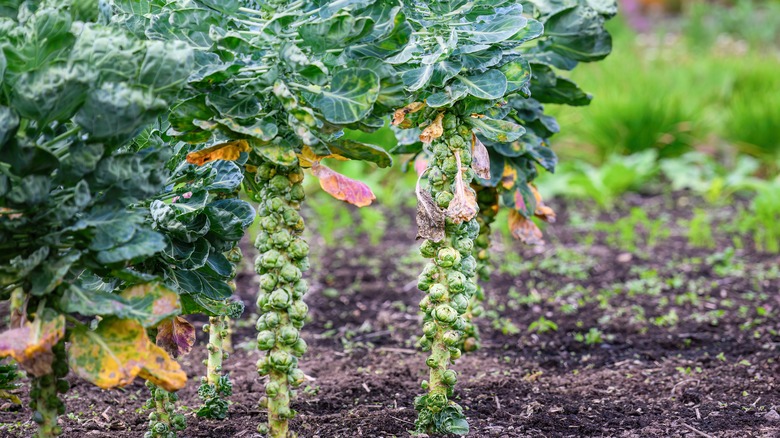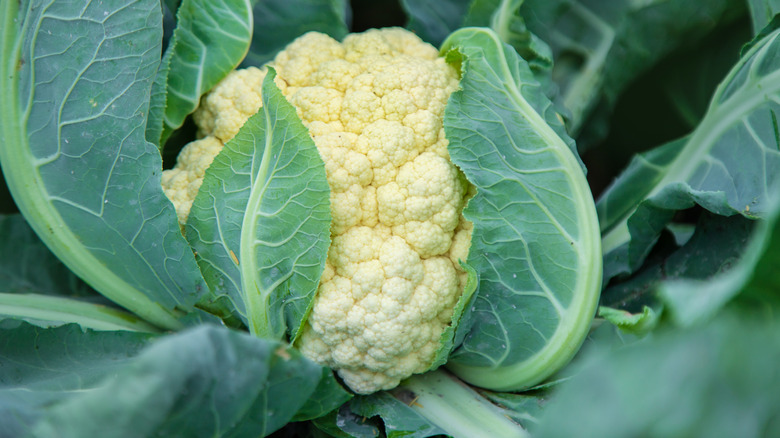9 Plants To Avoid Growing Next To Corn At All Costs
Growing your corn lets you enjoy this fresh, popular vegetable right from your own garden or yard. Grown for thousands of years, and a staple of many culture's diets, corn is a timeless crop. Whether eaten with a bit of butter, served on the grill, or transformed into homemade popcorn, you can do so much with corn once it's shucked. Yet don't think you can start your corn plant anywhere in your garden. Not only is there a best time for you to plant corn, but you must also be careful what crops accompany it in planting. Corn has specific needs, like any plant, and requires precise planning for what to use as its neighbors. Certain herbs, brassicas, and fruits should never be planted with corn.
Vegetable gardening is a science, not just a guessing game of thinking some plants might look nice together. A little knowledge goes a long way toward producing strong, healthy plants. There are multiple plants that can help corn flourish by attracting beneficial insects or enriching the soil with nitrogen, yet others do the opposite. Some plants can be detrimental to corn's growth, causing various issues including increasing pests and competing for nutrients. You may be surprised at what plants can actively suppress corn's growth. Having the knowledge of what plants can harm rather than help will go a long way to ensuring your garden thrives with tall, golden stalks of corn.
Tomatoes
Planting your tomatoes together with corn is a bad idea because they are both susceptible to damage by the same pest, which may lead to an infestation in both. The corn earworm (aka tomato fruitworm) can target both plants, their larvae feeding on the nutritional parts of ears of corn and tomato fruit. Even if the two plants don't suffer from pests, they both are known as heavy feeders as they take a lot of nutrients from the soil. The resulting competition for resources can lead to poorer development and introduce stress in both plants.
Fennel
Fennel (Foeniculum vulgare) may pair beautifully with fresh corn on your dinner plate but you should definitely separate the two when they're in your garden. One of the frequent downsides with planting this common herb with other plants is that fennel is known as an allelopathic species. Allelopathic plants can emit compounds that may kill or restrict the growth of your corn. Stick to only mixing your fennel with corn in a salad or other dish, and instead, keep these enemies several feet from each other or better yet, in separate garden beds.
Cabbage
Planting cabbage with corn may seem like a good idea, but as they're both heavy feeders, especially for nitrogen, it's a big gardening mistake. Outside of their competition for nutrients, corn quite literally overshadows cabbage as it grows, which can shield the sunlight from the young cabbages. On the flip side, a new corn plant may have too much shade from the large outer leaves of an established cabbage plant. Finally, because both corn and brassicas like cabbage are prone to aphid infestations, keeping them apart is best for healthy plants.
Eggplant
Eggplant and corn are terrible garden buddies. One of the biggest reasons corn and eggplant don't belong together is nutrition. They both take a lot of nutrients from the soil, so they'll be in tight competition for vital needs like water and nitrogen. Corn needs a lot of nitrogen as it grows, and it's one of the most-required nutrients. Throughout the growing process, corn's need for nitrogen can increase, so there's not an even balance between the two plants as they mature. Pests are an issue as well, as the potato aphid may also attack both corn and eggplant.
Kale
Just like cabbage and the other brassicas, your corn plant can impact the amount of sunlight your kale receives as it grows. Both plants also feed heavily from the soil, making it more likely that your kale won't thrive. Limited water intake can also lead to the kale producing chemicals that cause bitter flavoring in your harvest. You must also consider that corn earworms have the potential to also feed on your kale if your corn suffers from infestation.
Peppers
Do you like the idea of having a bounty of peppers next to your corn? Think again. Some gardeners like to grow corn as a windbreak next to peppers, but other say that if you're concerned about pests, avoid planting the two together. The cutworm can cause high amounts of damage to corn if it stands less than 18 inches high. Cutworms may also go after peppers, so the proximity between the two might encourage the pests to affect both.
Broccoli
Much like other brassicas, corn has the same problems with broccoli. In addition to being a heavy feeder, broccoli isn't good when grown with corn because of the armyworm. The worm pests may skeletonize the plants, leave holes in leaves, and reduce the plants to shreds. If the larvae migrate from the broccoli to the growing corn, they have the ability to tunnel into the corn's ears, potentially causing significant damage.
Brussels sprouts
When it comes to lighting, corn thrives in ample sunlight and Brussels sprouts need the same to thrive. The growing corn stalks may block too much of the sunlight for the Brussels sprouts, leading to a weak, stunted plant. The two vegetables are also incompatible in companion planting because they both require large amounts of nutrients from the soil. It's possible that your corn or Brussels sprouts can contract infestations of aphids, which may worsen if they're near each other.
Cauliflower
Cauliflower and corn will compete for the same nutrients in the soil as heavy feeders, so they're not good garden bedmates. What's more, you'll have to worry about the corn's growth shading the cauliflower too much, affecting its growth. Wireworms, or the larval stage of click beetles, may attack both plants as well. These damaging pests live in the soil, and may eat the cauliflower roots, especially after they migrate from your corn plants.
